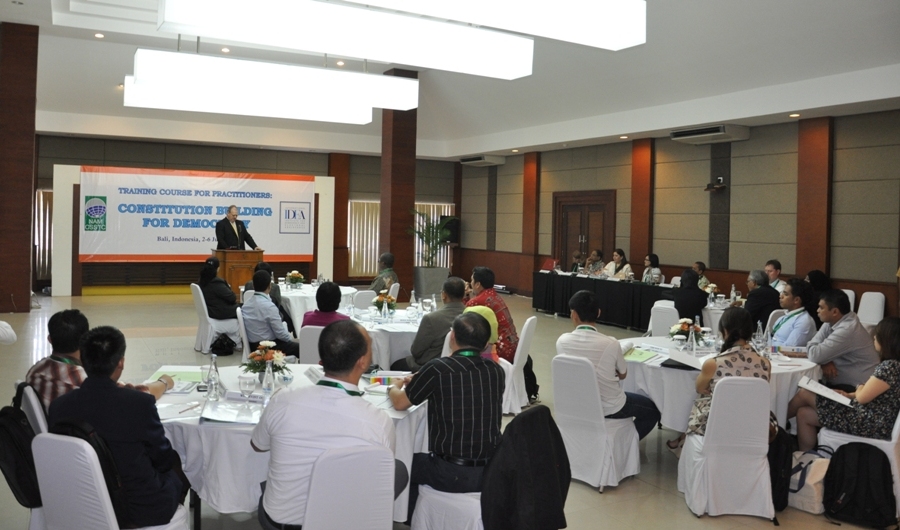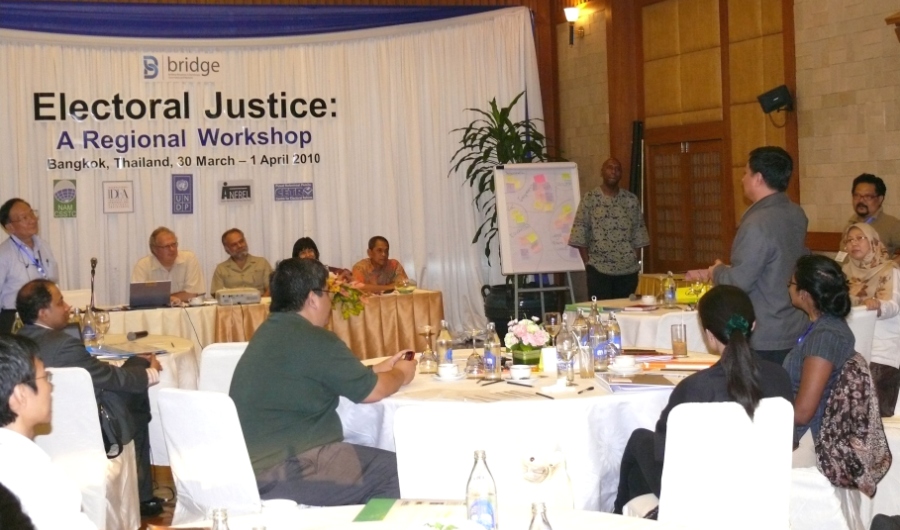|
Democracy and Electoral Justice
Immanuel Kant stated that in a democratic country, the government is controlled by society, therefore it required agreement from society for a government to declare war. Declaring war became difficult. In addition to moral commitment in preventing war, there was also spirit of commerce among democratic countries, frequently referred to as “Pacific Union.” This condition was getting stronger when there was economic interdependence among countries. With reference to Kant’s positivism, democracy could bring tendency of peace.
 However, the positivistic view encountered situation when function of democracy as peace bringer could not be fulfilled due to emergence of unipolarism. Unipolarism was found to bring disadvantages to developing countries. The world witnessed an increase in global military spending, wars in Afghanistan and Iraq, and the destabilising of the Middle East. There was the global recession, persistent underdevelopment in Africa and elsewhere, and several major democratic crises (Caragea, 2009). However, the positivistic view encountered situation when function of democracy as peace bringer could not be fulfilled due to emergence of unipolarism. Unipolarism was found to bring disadvantages to developing countries. The world witnessed an increase in global military spending, wars in Afghanistan and Iraq, and the destabilising of the Middle East. There was the global recession, persistent underdevelopment in Africa and elsewhere, and several major democratic crises (Caragea, 2009).
It did not take long for unipolarism to be gradually replaced by multipolarism, with the emergence of China and India. Mutlipolarism takes form of distribution of global force. In the meantime, the NAM helps shifting the world to a more equitable distribution of political power and economic wealth in a new multilateral era. Poverty eradication programme in the framework of South-South cooperation is successfully pioneered by Asia-African countries. Basically, Asia-Africa solidarity is directed to thrive economic enhancement through technical cooperation, education and training for capacity building and human resource quality improvement.
 Since 2009, the NAM CSSTC has successfully organised democracy-related programmes, ranging from South-South Regional Symposium on Constitutional Design for Diversity and Conflict in 2009, Training Course on Constitution Building for Democracy in 2012, and International Workshop on Democracy and Innovation in Good Governance in 2015. Our committed partner institutions in the programmes were International Institute for Democracy and Electoral Assistance (International IDEA), Ministry of Foreign Affairs of Indonesia, National Institute of Public Administration of Indonesia, Corruption Eradication Commission of Indonesia and USAID. The NAM CSSTC provides 11 experts on this issue with diverse nationalities. Since 2009, the NAM CSSTC has successfully organised democracy-related programmes, ranging from South-South Regional Symposium on Constitutional Design for Diversity and Conflict in 2009, Training Course on Constitution Building for Democracy in 2012, and International Workshop on Democracy and Innovation in Good Governance in 2015. Our committed partner institutions in the programmes were International Institute for Democracy and Electoral Assistance (International IDEA), Ministry of Foreign Affairs of Indonesia, National Institute of Public Administration of Indonesia, Corruption Eradication Commission of Indonesia and USAID. The NAM CSSTC provides 11 experts on this issue with diverse nationalities.
|

